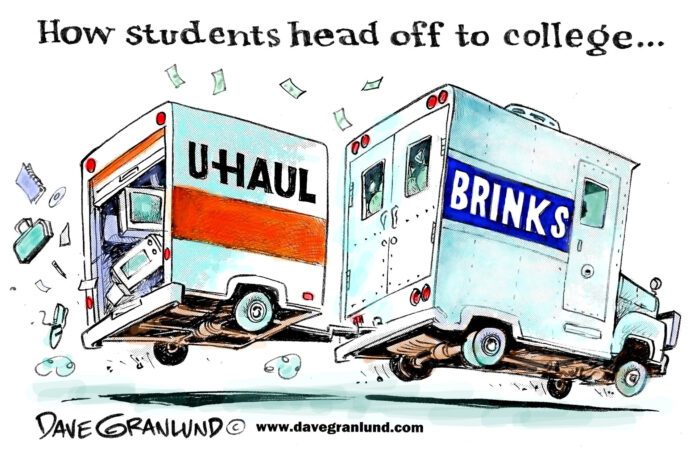Last century, in the early days of statehood, Oklahoma was heralded nationally for its system of regional colleges that helped give higher education access to students across a mostly rural landscape.
Located in burgs like Goodwell, Alva, Durant, Tahlequah, Ada and Weatherford, it was an ambitious – even audacious – commitment from a fledgling state to its future generations.
And it paid huge dividends: the so-called “directional schools” not only educate thousands of students annually, but also serve as economic engines for their hometowns and vicinities.
The question is, for how much longer?
For example, technology is expanding academic options [think: online course and degrees] at a time when shortsighted lawmakers are pinching higher ed budgets, burdening students and their families with an ever-greater share of the cost of receiving an in-person, post-secondary education.
Some policymakers will shrug, of course. If a smaller-town college can’t successfully navigate the 21st century’s verities, well, too bad, so sad. Survival of the fittest, don’t you know.
That isn’t an everyday case of shortsightedness. It’s acute myopia.
Oklahoma already struggles to get its high school graduates to attend college – nearly 60% didn’t even bother to enroll the fall after they graduated in 2022, for example. That should alarm lawmakers. After all, these newly-minted high school grads are our future leaders. They will determine whether 21st century Oklahoma soars or sinks.
If the goal isn’t to get more Oklahoma teens earning higher ed diplomas, it should be. And it isn’t that hard to do – especially for a state sitting on billions of dollars in reserve that could be invested in life-changing pursuits like higher education.
The chancellor and presidents urged legislators to give colleges the flexibility to help students and their families on higher ed costs. Maybe it’s by waiving in-state and out-of-state tuition. Or extending the Oklahoma Opportunity Scholarship to college students from low-income families.
Prime example: House Democratic Leader Cyndi Munson. As a first-generation college student, Oklahoma’s Promise helped her attend the University of Central Oklahoma, where she earned a bachelor’s in political science and was awarded the Presidential Gold Medal for Leadership and Public Service. She later earned a master’s in Leadership Education from the University of Nebraska-Lincoln. In 2015, Munson became the first Asian-American woman elected to the Oklahoma Legislature.
How many other Munsons are among the Sooner high school grads who don’t reach for the stars? Or do … only to find the fiscal challenges too daunting? Mostly because of a statehouse dominated by those who know the cost of everything and value of nothing.
This is not to suggest higher ed is the only way to climb the economic ladder. But for most, it’s the surest way. Almost every reputable study shows college grads earn more in their lifetimes than those without diplomas.
One way to encourage that pursuit is by investing significantly in all of Oklahoma’s higher ed institutions, not just the Big Two. Allowing smaller schools to languish – possibly even fail – would be legislative malpractice.
The Big Two aren’t for everybody. My sons grew up attending Edmond schools; the oldest then graduated from Northwestern State in Alva, the youngest from UCO. My daughters-in-law earned degrees at UCO and East Central. All are successful professionally – living and raising their families in Oklahoma.
Just imagine if 21st century lawmakers had half the vision for higher ed of their early 20th century predecessors …







